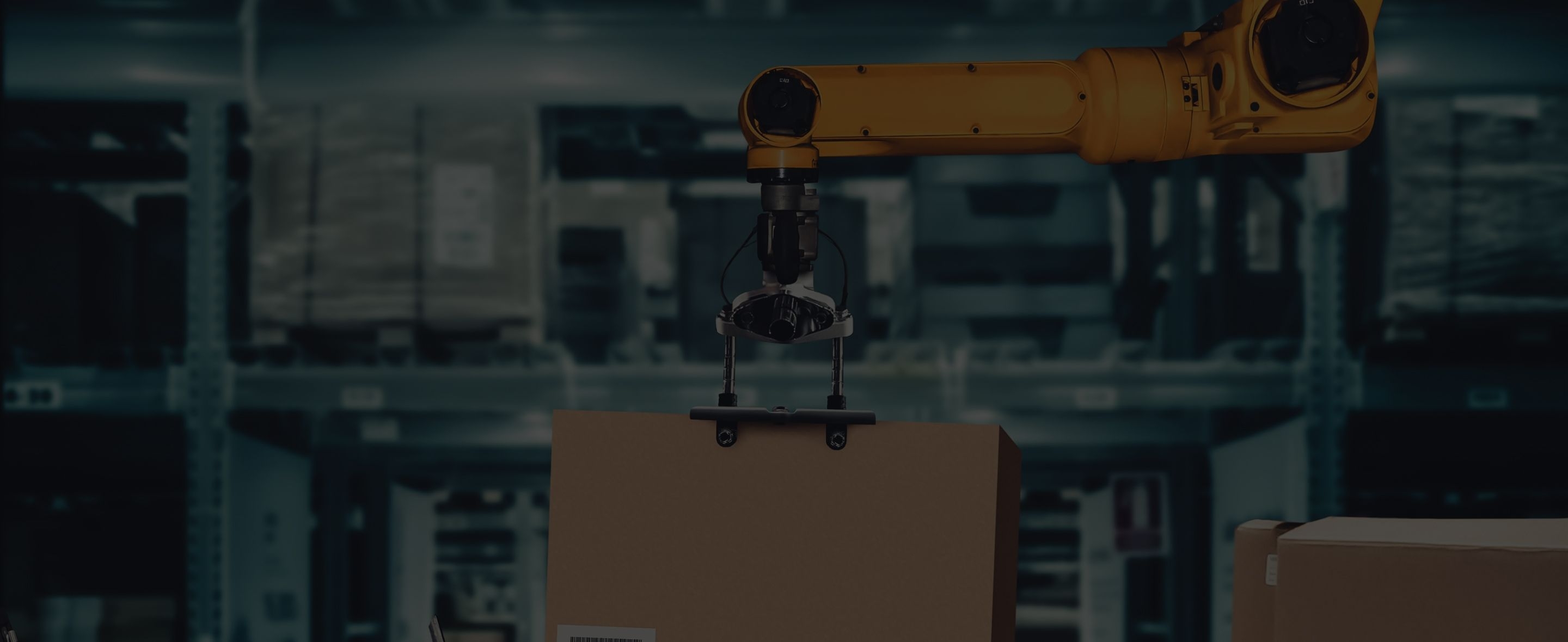
An exclusive interview with SeaIntelligence Consulting CEO Lars Jensen on automation



Understanding the role of automation and digitalization in shipping
As the ocean freight industry moves to embrace digitalization and automation, it’s not only important to understand their benefits but also their shortcoming and risks involved.
And to do so, iContainers had the honor of sitting with one of the industry’s leading experts on the topic, Lars Jensen, CEO of Seaintelligence Consulting, to get his professional insights on these new technologies as to where the shipping industry is headed with them.
Here are five key questions on automation in shipping answered.
1. Why are automation and digitization so important in shipping?
It is really important in order to cut down on a lot of very wasteful processes. There are a lot of ongoing manual work that can be automated. And the reason they should be automated is down to cost. If you can automate something, you have lower costs. Some argue that labor costs are so fantastically low in some countries that it doesn’t pay to automate. Well, not quite.
First of all, that might be true now. But over time, salary levels do go up. Look at the whole wave of moving out to China. The natural result is that over time salaries go up and that would force you down an automation path anyway.
Secondly, when you start to automate, you drastically cut down on the amount of errors made during the process. There can still be errors when you get the initial input in but at least you won’t make more errors as you go along. From the point somebody decides they need a container until it’s delivered at the other end you can easily have 40, 50, or 60 different people involved in the chain. The more manual processes there are, the more time you will end up with data getting distorted and something will go wrong. That’s an insane waste.
2. Is this a process that should have been implemented a long time ago?
It should have been implemented a long time ago but it wasn’t not because the industry as such has been stupid. We need to take into consideration the context of the industry’s development. If you look at it until the mid 2000s, there’s a good case for why we have not really begun to standardize and automate even though the technology was there.
Container shipping, unlike the rest of shipping, is a very new industry. And like every industry, you always have this early rapid growth phase. And that’s what we went through as well. **When you’re in the early rapid growth phase, the companies that will succeed there are the ones that are able to grow rapidly with the market. **And with this market being global, If you look at how many of the container lines have been running over this period, they actually have been fairly decentralized. Some key decisions have been made in their headquarters but then you usually leave local organizations to do things. So that has attracted a lot of entrepreneurial types into the industry as well.
Let’s say we set up a liner shipping company in the early 1980s based on a lean philosophy. That would have failed spectacularly because you say “we need to have these processes and all these countries” and before you ever got these processes in place, the market would have grown 20%. You’d be vastly outgrown by your competitors, and you’d be lost. Such an early growth phase does not favor process-driven companies at all. It favors relatively fragmented and decentralized companies. So that explains why we were not actually good at handling process management right until the early 2000s.
For me, automation and digitization are absolutely necessary to survive. Without them, you will lose out on cost. If I’m the first shipping line to truly get digitized and automated, my costs will go down and everyone will still be facing high costs and that’ll be great for a short while. But if I can automate and digitize, so can everyone else. So over time, the whole industry will come down to the same base line. Those who don’t will die, they will go bankrupt. That’s why I say it’s necessary. That said, it’s a temporary advantage and it will disappear. So what am I going to compete on?
The only way you’re going to survive that one is to make sure what you’re competing on is something else such as exception handling/customer service. That’s the upsell you can do. The stuff that cannot be automated has to then be the competitive edge for the shipping lines out there. Because otherwise, that’s not selling the commodity, which is not necessarily a nice place to be. It may be okay if you truly have a lower cost than everyone else. But if you look at the market, that’s highly unlikely to be the case for any single one carrier.
3. How do freight forwarders tie into all of this?
It’s going to be even more interesting for freight forwarders. I tend to think of freight forwarders as a spectrum. Where on one hand, I have, for example, a very pure NVO who only books 500 slots on a carrier, CY/CY and sells them off one at a time CY/CY and that’s it, no value at all. It’s the simplest thing you can do. On the other hand, for example, you have somebody who does pick and pack and handles your entire supply chain, presenting a huge spectrum of complexity. Automation is not really gonna impact this part of the spectrum very much because these are the very complex things that are difficult to automate.
The key part is digitalizing and automating the large amount of manual processes involved that don’t necessarily generate a lot of value. A lot of this stuff can, should, and will be digitized and automated. And that leaves an interesting battlefield.
Some will lose big and cease to exist and some will find exactly the right sweet spot and thrive. How many freight forwarding companies do we have now globally? 10,000? 20,000? 50,000? A lot. This might be then concentrated down to a few thousand but there will still be plenty of room for players there also because you will have small outport locations that will never be commoditized to that degree.
4. Do you think automation alone can improve efficiency or are there other underlying issues that are in the way?
Automation alone is kind of like let’s buy an IT system and put it in and then we’ll be more efficient. By and large, that approach tends to fail. Again because if you just put in an automated piece of equipment and not change the work processes, you really accomplish absolutely nothing. **There has to be an element of process change. **Not just in that process that you automate but also all the processes that it links to both for inputs and outputs. Otherwise, you get nothing from it.
Even then, sometimes you need to look at other places. If you look at, for example, fully automated container terminals, there are now five in the world that are fully automated. There are no people out there at all, they’re all just robots. Does it get more efficient? Well, it depends on how you define efficiency.
A lot of the automated container terminals are built in places with high-labor costs. So part of the efficiency was just that the robots were cheaper than the people. Fine, that’s efficiency. But do you handle a ship faster? The handling time of a ship in a fully automated terminal is basically the same as in a manual terminal. So you’re not increasing the capacity. What you’re do is introducing a much more stable environment in which you’re more certain that it is going to take a set amount of time to handle a ship. But it’s not necessarily faster. Automation in itself doesn’t necessarily create more efficiency but it creates a more stable environment.
5. Which aspect (ports, shipping lines, customs, etc) is currently the best equipped to adapt to technology?
The parts that are clearly best adapted - because for a number of carriers you’re already up in the 90% adaption - are in the electronic booking, electronic shipping instructions, that sort of thing. You can say that’s the best because it’s the furthest along. It’s been here for almost 20 years now. Some carriers have it at 98% or 99%. But some are still down at 0%. So the ones at 0% could clearly get up much higher very, very quickly if they chose to do so. But why don’t they choose to do so? Some of them don’t have the backend systems to cope with it, some don’t have the mentality. Some have a high leverage towards customers that say we don’t want this. So that’d be one aspect of it.
The other thing that lends itself most towards it is the parts that comes before bookings: the sales angle. If you come into the industry cold and know nothing about it, it appears enormously strange that that process is manual. Why is that one not already online and automated? From a technological perspective, there’s absolutely nothing preventing it. We see it in many other industries for obvious reasons as well. The main stumbling block in leveraging that has much more to do with not just processes but also mentality on, for example, the liner shipping size. There’s still a huge apprehension towards something as simple as price transparency. That apprehension is not always well-founded. It’s kind of like, if nobody knows my price, I can haggle a bit, like the 17th century horse trading market. You don’t want other people to know what you say.
Now that’s the poor reason. The good reason is because contracts are not enforceable. If I show my price online, what’s to prevent somebody from booking at that price? Then if he gets a better deal somewhere else, he’ll just forget that one and book at the lower one. So there’s this fear of being played against each other so enforceability of contract becomes a key element in making that happen too.
The last aspect to be solved will be the actual Bill of Lading. That’s not to say it’s not important because it’s actually very important. Seaway bills have no problems, but the actual Bill of Ladings do. That’s partly because there are so many different stakeholders involved in it and clearly not all of them are interested in seeing their roles go away.
And secondly, the legality of it plays a part. We have 140 years of legal precedence in how to interpret all these weird things in the back of the BL and it really is weird. “You are not covered in the case of restraint of princes for example.” Literally. Restraint of princes? Well that was back to a world where you might have a local prince that might impound your ship, for example.
In this industry, you don’t have a choice. If you book on the Bill of Lading terms, that is it. And the reason nobody really wants to change the Bill of Lading terms is precisely because you’ve got 140 years of legal precedence. So all the lawyers know how exactly this will fall out now. But if you change anything on the Bill of Lading, suddenly, you don’t know. So if this goes to court, it’s anybody’s guess as to how it would be interpreted. The Bill of Lading has the effect of having a set of laws and rules that applies in virtually every country around the world. Getting that in place has been and is very, very difficult. So, while the Bill of Lading is potentially the best thing to reinvent, it’s also probably the last thing to be reinvented because it’s hugely complicated to do.
- 1. Understanding the role of automation and digitalization in shipping1. Why are automation and digitization so important in shipping?2. Is this a process that should have been implemented a long time ago?3. How do freight forwarders tie into all of this?4. Do you think automation alone can improve efficiency or are there other underlying issues that are in the way?5. Which aspect (ports, shipping lines, customs, etc) is currently the best equipped to adapt to technology?
Related Articles


